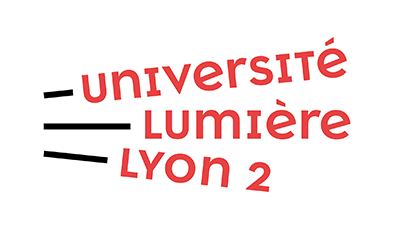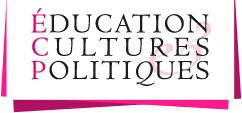Education, Cultures, Policies (ECP) is a laboratory in science of education and formation, created in 2010, whose work focuses on the articulations between field actors and public educational policies, adopting socio-historical and/or philosophical-political approaches. Its aim is to analyze the practical, discursive, and instrumental mediations through which a plurality of actors, at different levels of responsibility and at different territorial scales (from local to global), contribute to the elaboration of or react to strategies, orientations, and political behaviors in the field of education and formation.
The research work produced is part of the study of public action in education and training, focusing on the dynamic processes involved in any injunction among field actors, at different scales. The study of these processes relies on a multidisciplinary approach to produce knowledge on solid theoretical and empirical bases, with a concern for cumulative results, and on epistemic-theoretical articulations. This multidisciplinary, a permanent and stimulating challenge, requires bridges of understanding between sociologists, historians, anthropologists, but also with philosophers, didacticians, educational technologists, language scientists, economists who take education and training as an object of study.
The majority of ECP members belong to the 70th section of the CNU. Since 2011, this multi-site laboratory has been located at the University of Lyon 2 and brings together teacher-researchers from the University of Lyon 2, Jean Monnet in Saint-Etienne, INSPE of the Lyon academy and IFE-ENS of Lyon. The laboratory is structured in 4 axes and transversal themes:
Axis :
- Professionality: activity and pathways;
- Common world, diversity, and inequalities: discourses, policies, and practices ;
- Art and culture policies in education and training ;
- Policies and practices of higher education: transitions, times and environments.
Transversal themes :
- Circulation of knowledge between sciences, policies and practices studied from the point of view of educational public action ;
- The work of categorization by the actors of education and training, and its effects ;
- Environments (instruments, territories) ;
ECP attaches particular importance to its role in supporting and training doctoral students. It supports the activity of the junior laboratory set up by the doctoral students by promoting external and internal events. The junior laboratory, like the ECP laboratory, develops national and international partnerships for research projects or doctoral and teaching mobility.
- Items of the ECP Research Unit
-
The UR Education, Cultures, & Politics aims to analyze the practical, discursive, and instrumental mediations through which a plurality of actors, at different levels of responsibility and at different territorial scales (from local to global) contribute to elaborating or reacting to strategies, orientations, and political conducts in the field of education and training. These policies, which are designed for an increasing diversity of publics, are analyzed both over the long term and in their most contemporary developments. Basing part of its work on the historical study of education and training, the UR is particularly sensitive to the identification and study of the transformations that are taking place (representations of the ideals of justice, equality and universality, the rise of the themes of diversity and recognition, the taking into account of inequalities and difference, changes in the activities and professionalities of teachers and other professionals, reformist arguments and rhetoric, curricular changes, the renewal of critical thinking and the role of the State in a context of globalization), through which a new model of formative socialization is being established, in which the place of the school institution would be significantly reconfigured.
The basis of their common problematization of education and training issues by the members of the UR Education Cultures & Politiques can be defined as follows. From the 17th century until the great school laws of the end of the 19th century, through hazards and variations, what the sociologist of Lyon 2 Guy Vincent has called the "school form" characteristic of Western societies, and pertaining to the modern project, has been set up. This can be characterized globally and in an ideal-typical way in reference to a uniform conception of space (a closed space especially devoted to education), of time (a very regulated organization is cultivated), of duties (in all senses of the term), of pedagogy and didactics (primacy given, as regards learning, (primacy given, as far as learning is concerned, to conformity to principles and rules rather than to the personal process of appropriation/construction of knowledge by a subject), to the person of the student (an impersonal person in a way, abstract, not recognized in his/her differences and belonging, nor in his/her possible creative dimension), to those of the teacher and the administrator (little called upon to think in terms of reflexivity and of professional autonomy) This standardization of education has de facto accentuated differences in appearance or thinking through a process of educational segregation, particularly visible for children and adolescents with disabilities. It has also affected adult education, which has often thought of its development as a break with and in opposition to this model.
In France, the school form has long coincided with what is known as the "republican school", a public In France, the school form has long coincided with what is known as the "republican school", a public institution in principle devoted to the universal, to the general interest, to justice, to freedom of conscience, and populated by desingularized individuals. Since the beginning of the 20th century, this school has been legitimized by an ideal of equality: the principle of equal rights and relatively equal conditions of access to studies has presided over many school projects or reforms and the construction of the single college. For several decades, it has been the object of social and sociological criticism and is today shaken by other political models that imply new modes of relationship with the State, new devices, redefinitions of knowledge, actions, relationships, of the teacher's profession and of the "pupil's profession" or of the student's profession, which the UR endeavors to analyze through various approaches. These transformations are based on several logics which are at the same time carried by international organizations, by the State and by the social actors themselves. The logic of the market, the managerial logic penetrates a school world and, more broadly, a world of education that is increasingly subject to competition, evaluation, and the obligation of results. At the same time, the politics of recognition encourage the redefinition of the school as an inter or multicultural space. This situation invites us to take up anew the question, still central in the sociology of education, of inequalities in access to knowledge, in connection with social and cultural inequalities, gender inequalities and inequalities resulting from the nature of the training offer and its distribution on the territories. Even though evaluation tools are being developed on a national and international scale to provide a more detailed understanding of these inequalities, these tools are being used from different perspectives and on different scales, transforming the arguments and interpretations of situations. In the perspective of identifying and understanding the emergence of a new form of formative socialization, the RU studies the way in which the different actors (including the State, local authorities, education professionals, unions and multiple stakeholders, students, etc.) use these tools as resources, the use they make of them and the meaning they attribute to their action. Since "complex democracy" (Rosanvallon, 2008) requires both a politics of impartiality and a politics of proximity, educational public policies and actor practices need to be re-examined. For example, about the issue of diversity, the divergences between the various conceptions of an overarching justice, which are still prevalent, and the deployment of "care" or recognition policies place the school under tension. These tensions cannot be resolved by the sub-political deployment of a governance based on the new generality of international standards and standardized measurement devices, subordinating the individualization of training and the considering of diversity to a single requirement of efficiency. Faced with the diversity of expectations and injunctions, the analysis of the arbitrations made by the actors allows us to go beyond the sterile alternative of a sociology of support and a sociology of denunciation.
In the observed changes, technologies and evaluation tools are involved, new curricular orientations touching as well on the aesthetic question as on that of the inclusion of students with disabilities, inducing evolutions of professional practices, perhaps what could be called a new pragmatics of the teaching activity, new approaches to the recognition of differences and inequalities, whether ethnic and cultural, linked to disability or measured in terms of academic success, new forms of public management, and critical thinking of teachers. These objects constitute some of the main thematic entries of the laboratory. The views of the members of the UR on these transformations, whose analyses only make sense in relation to the analysis of a longer history, are necessarily plural, depending on the disciplinary field in which they are mainly situated, and on the theoretical frame of reference they favor.



